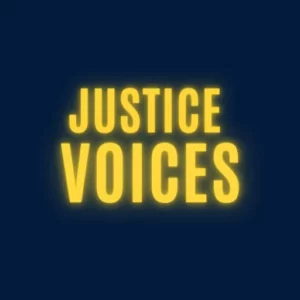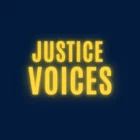All Episodes
Criminal justice stories podcast, Justice Voices is essential listening for concerned citizens, policy-makers, justice professionals, community leaders, and anyone interested in how we can create safer communities by shifting from a punishment approach to criminal justice to a problem-solving approach. Watch on YouTube.

Ep 14 Part 2: Michael Tafolla
Part 2 of Michael Tafolla’s story and his message about trauma, violence, transformation, and restorative justice.

Ep. 14 – Michael Tafolla
Michael Tafolla shares part 1 of his story of childhood trauma from chronic victimization by gang-related gun violence and how as a teenager he became what he feared when he took up the gun, leading him to prison for murder, where he changed his life.

Ep. 13 – Pastor Jennifer Stephens
Pastor Jennifer Stephens shares her story of experiencing the trauma of victimization, self-medication with alcohol, jail and prison, support from church and family, reentry to community life after release, barriers faced because of her felony record – amounting to permanent punishment – resource recommendations for formerly incarcerated people in the Chicago area, her path to the ministry in the United Methodist Church, lessons learned, and her concluding message to the public about how to view formerly incarcerated citizens.

Ep. 12: Eddie Bocanegra of READI Chicago – A Video Interview
Eddie Bocanegra Video: His Journey from Gang Violence to READI Chicago Eddie Bocanegra grew up in Little Village on Chicago’s west side. His neighborhood felt

Ep. 11: Reality (Allah) Lovett
From a public safety policy and justice reform standpoint, this is one of the most important episodes of Justice Voices published to date. Richard Lovett,

Ep. 10: Willette Benford, Chair of Fully Free campaign
Willette Benford is Board Chair of the Fully Free campaign of Heartland Alliance. In this episode she tells the story of how she was convicted

Ep. 9: Cedric Frison of the Fully Free campaign and READI-Chicago
Cedrick Frison shares wisdom gained from the hard lessons of living life on the streets of the west side of Chicago, including the effects of

Ep. 8: Fully Free campaign of Heartland Alliance
The Fully Free campaign of Heartland Alliance aims to end “permanent punishment” for people seeking to lead law-abiding lives after release from prison. Campaign manager

Ep. 7: Marlon Chamberlain
Marlon Chamberlain manages the Fully Free campaign of the Heartland Alliance in the Chicago area. In this episode he shares his personal story and insights

Ep. 6: Sam Dent
In this episode of Justice Voices, you will hear from guest Sam Dent, who served a mandatory minimum 20 years in prison in a case

Ep. 5: Insights from Illinois Commission on Criminal Justice and Sentencing Reform
This episode provides a big picture overview of why our criminal justice system needs improvement, especially regarding our overuse of prisons, by exploring the gold

Ep. 4: Violentization (part 2)
The root cause of violentization is trauma from chronic exposure to violence, usually beginning in childhood or adolescence. Victims of violence become victimizers. Why? Because
